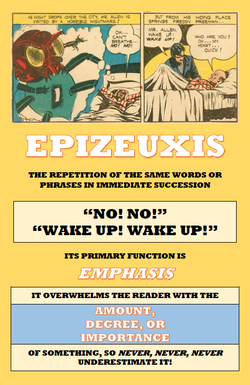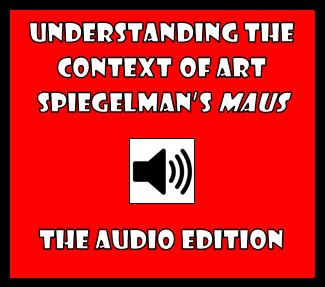Every once in a while I have my students participate in an experiential activity whose purpose is to teach them just how much information contemporary technologies provide them access to. In the activity, students must put away their laptops and smartphones, and then use nothing more than the technologies that existed in the early 1980s to answer a series of very challenging questions. They are permitted to use the school library, and can look up books on the library's computer (given the absence of a card catalogue) but they certainly cannot surf the web, use keyword searches, or do anything that would allow them to answer the questions in the nanoseconds it would take them with technology. On one occasion, a student came up to me who was trying to figure out what a particular word in one of the questions meant. "Can you tell me what this word means?" the student asked, to which I replied, in teacherly fashion: "Where would you find the definition?" The student looked at me puzzled, then looked at the question again, but doing so didn't seem to help. "I don't get what you mean," he said. "Wouldn't you use a dictionary?" I replied, after a short pause, giving him that look that suggested I was trying to break something gently to him so that he wouldn't feel altogether too silly. But what he said next was a stunner. "Uh...how am I supposed to do that? You took away our laptops..." Before the bibliophiles out there begin to lose their minds over this, let me take a moment to say that the kid was right. It's likely that he had never looked up anything in a print dictionary, and who can blame him? Dictionary and encyclopedia publishers have largely moved to online platforms now, and I can get dozens of definitions for a single term, cross-indexed, hyperlinked, and all in the time it takes me to type in the word. The problem, however, is that many writers and thinkers in the past two decades have used stories like the one above to write articles about the "Death of the Book," suggesting that digital technologies have changed the publishing landscape forever and that it's only a matter of time before books are entirely obsolete. Inevitably, this prompts others to write about how the book can't die or about how the news of its impending death is an exaggeration of the facts. The problem, as I see it, is that when people write about the "Death of the Book," they're beginning the conversation by talking in metaphors. Framing the discussion in this way isn't really productive, however. People have strong feelings about reading, and about the relationship they have with books, and so it's no surprise that they decry what they see as the end of a beautiful friendship. The whole argument, however, is silly. Should we really be worried that the advent of electronic libraries, the decline of traditional bookstores, and the changing reading habits of young people are threatening to destroy printed books? No. Why shouldn't be worried? Well, we went from carving things on stones to writing by hand to printing out manuscripts, to housing them digitally, and in the process we seemed to increase the number of people who can read and who enjoy it. And it's simply not going to be the case that we discover new ways of reading that are awful or terrible or that people won't like, because someone will simply come up with something that isn't awful and isn't terrible and that we do like. I grew up loving books and going to libraries and bookstores. I loved leafing through dictionaries and encyclopedias to discover new things. And I especially loved the smell of walking into my local comic book shop and seeing the titles, old and new, lining the shelves. And although I still love books and feel a sense of nostalgia about my childhood reading experiences, I'm not going to pen an elegy about the death of the book. They are changing and transforming and gradually becoming something new and different, but when all is said and done, they are just the medium through which we get to learn about other people's stories. And it's not like we're going to stop telling each other stories any time soon. If you enjoyed this article, or even if you didn't, don't worry. Perhaps the book will make a resurgence some day, as shown below:
2 Comments
6/11/2014 02:26:30 am
Glad you're enjoying the site, Melissa! My latest post went up today after a couple of weeks of intense marking. It's on teaching a Literature in Translation unit using Graphic Novels!
Reply
Your comment will be posted after it is approved.
Leave a Reply. |
Glen DowneyDr. Glen Downey is an award-winning children's author, educator, and academic from Oakville, Ontario. He works as a children's writer for Rubicon Publishing, a reviewer for PW Comics World, an editor for the Sequart Organization, and serves as the Chair of English and Drama at The York School in Toronto. If you've found this site useful and would like to donate to Comics in Education, we'd really appreciate the support!
Archives
February 2019
|





 RSS Feed
RSS Feed
